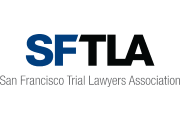Many of my clients have suffered Traumatic Brain Injuries (TBI) or Mild Traumatic Brain Injuries (mTBI). What is a TBI and what is an mTBI?
Traumatic Brain Injury describes an impairment of brain functioning. TBI can result from trauma or injury, infection, or lack of oxygen. It can occur from motor vehicle accidents, head trauma, objects striking the head, falls, construction site injuries, chemical exposure, near drowning, birth-related injuries, or hospital or other medical negligence.
Mild Traumatic Brain Injury is a trauma-induced physiological disruption of brain function, as manifested by at least one of the following:
The Brain Injury Research Center at UCLA director David Hovda points out, “I don’t know what makes it ‘mild,’ because it can evolve into anxiety disorders, personality changes, and depression.” It can also set off a constellation of physical disabilities from chronic pain to sexual dysfunction and insomnia.
Apparently (although the brain injury is largely hidden) some new more powerful MRIs are available to track the flow of water through the brain’s neurons, showing anomalies that indicate the presence of mTBI.
MTBI is hardly new. Some 5.3 million people in the U.S. are currently hospitalized or in residential facilities because of it, and its social consequences are severe. Drug therapy does not seem to provide the best solution, although unfortunately, this has been the solution of choice in many cases (in the military, for example). The brain can heal to some degree. It has an intrinsic plasticity that allows it to recover.
The good news is that the U.S. Dept of Defense has awarded $2 Million to Brain Plasticity Inc. to study TBIs. This company is a technology incubator dedicated to the discovery and development of novel technologies that harness the basic principles of brain plasticity to improve the lives of people with neurological and psychiatric disorders.
The grant will fund a trial of 132 people suffering from ongoing cognitive impairment following TBI across five separate locations in the United States. The technology used in this trial is derived from similar brain-plasticity-based cognitive training programs developed at
San Francisco-based Posit Science, which continues to apply this core technology to develop new training programs that improve cognitive function in healthy individuals seeking to stay sharp and perform at their best.
At Choulos, Choulos & Wyle, we have extensive experience in the area of catastrophic personal injuries, including brain injuries. Please feel free to contact us if you or anyone you know has any questions about their rights pertaining to TBI and/or mTBI.
About the author: Claude Wyle is an aggressive advocate for Bay Area head trauma victims. Claude has decades of experience representing those harmed by the wrongful conduct of others, and, as a Bay Area brain injury lawyer, has fought to protect the rights of head injury survivors throughout his legal career.





